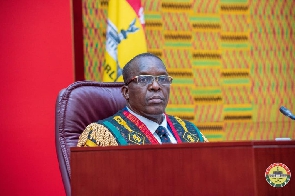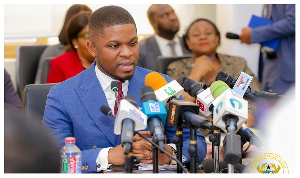Over 60 Ghanaian lawmakers have defied an order from the Speaker, Alban Bagbin, to test for COVID-19.
The speaker has expressed worry over the development appealing to the other MPs to strictly adhere to the safety protocols since some members have contracted the virus.
“My directive that all members subject themselves to COVID-19 test has not been complied with by about 60 members of parliament. It is true as the majority leader has stated that we are all not safe, even in the House some members are afflicted by COVID-19,” Bagbin said.
He added: “You may not know who the person is because of protocol issue of confidentiality, we have not disclosed those who are now positive, but we have some of us in that category.”
COVID-19 situation in Ghana
Ghana has recorded 13 more deaths from COVID-19 infections since the last update, bringing total fatalities to 390, as of January 25, 2021.
The active cases stood at 3,940 after 625 new cases were recorded in six out of 16 regions.
Dr Patrick Kumah-Aboagye, Director-General of the Ghana Health Service, who announced this at a media briefing in Accra on Thursday, said the daily average cases stood at 600.
The country’s cumulative cases stood at 63,883 after more than 757,000 tests.
The GHS boss said it had stepped up Contact Tracing across the 16 regions, with 330 contact tracers in the Greater Accra Region, which managed to contact 8,679 people.
Dr Kumah-Aboagye expressed worry over the increasing workplace infections, and urged managers of both public and private companies and organizations, to enhance observation of COVID-19 etiquettes at the various workplaces.
Dr Kumah-Aboagye noted that” referral of patients to a public health laboratory for COVID-19 testing is free”.
He entreated the public to observe the COVID-19 safety protocols in public places, including covering one’s mouth when coughing and sneezing, washing of hands with soap under running water, wearing of facemasks or shield and use of hand sanitizers frequently.
He gave the assurance of the Service’s determination to collaborating with the media in educating and sensitising the public on the safety and preventive protocols.
General News of Saturday, 30 January 2021
Source: 3news.com













